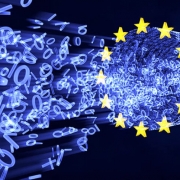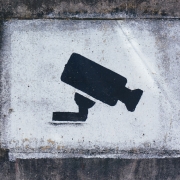 https://dsa-observatory.eu/wp-content/uploads/2023/03/background-g7b7a411b2_1280.png
720
1280
admin
https://dsa-observatory.eu/wp-content/uploads/2021/04/DSAO-header-logo-300x257.png
admin2024-03-19 12:59:532024-03-19 12:59:53Summer course 2024 on “European Platform Regulation”
https://dsa-observatory.eu/wp-content/uploads/2023/03/background-g7b7a411b2_1280.png
720
1280
admin
https://dsa-observatory.eu/wp-content/uploads/2021/04/DSAO-header-logo-300x257.png
admin2024-03-19 12:59:532024-03-19 12:59:53Summer course 2024 on “European Platform Regulation”The Digital Services Act (DSA) Observatory
The “Digital Services Act (DSA) Observatory” is a project run by the Institute for Information Law (IViR) at the University of Amsterdam, which acts as a hub of expertise on the new EU Digital Services Act Regulation.
The DSA Observatory provides independent scholarly input and facilitates discussions regarding this important legislation, its implementation and enforcement. In particular, the DSA Observatory focuses on fundamental rights and democratic values as a means to confront platform power.
Launched in January 2021, the Observatory has followed the DSA political process closely. It engages with different stakeholders and brings together a broad network of platform regulation experts from academia, civil society, and government.
The project generates regular analysis on the DSA and relevant developments, including blog posts, policy reports, academic articles, and events including expert workshops, panels and conferences.
About The Digital Services Act (DSA) Observatory
The DSA Observatory
The Digital Services Act (DSA) Observatory is a new project run by the Institute for Information Law (IViR) at the University of Amsterdam, which kicked-off in January 2021. The DSA Observatory acts as a hub of expertise with respect to the “Digital Services Act” package presented by the European Commission in December 2020.
Project team
The core project team for the DSA Observatory is composed of prof. Joris van Hoboken, Ilaria Buri, Paddy Leerssen, dr. Ronan Fahy, prof. Natali Helberger, prof. Martin Senftleben, dr. João Pedro Quintais and Doris Buijs.
Funding and collaboration with the Digital Legal Lab
The DSA Observatory is part of the “Digital Transformations of Decision-Making” research initiative of the Amsterdam Law School and contributes to the activities of the Digital Legal Lab, an interuniversity research centre on law and digital technologies run by a research network between four Dutch universities: Tilburg University, the University of Amsterdam, Radboud University Nijmegen and Maastricht University. This joint research initiative, the Digital Legal Studies Sector Plan for legal research is funded by the Dutch Ministry of Education, Culture and Science (OCW). The DSA Observatory has received funding from the Open Society Foundations and from the Civitates initiative (“Healthy Digital Public Sphere” programme) and the European Platform Publics Research Network (a collaboration with the Alexander von Humboldt Institute for Internet and Society and the Hans-Bredow-Institut), funded by Stiftung Mercator.
Where we focus on …
Europe / Brussels
Lorem ipsum dolor sit amet, consectetuer adipiscing elit. Aenean commodo ligula eget dolor. Aenean massa. …
Justice
Aenean leo ligula, porttitor eu, consequat vitae, eleifend ac, enim. Aliquam lorem ante, dapibus in, viverra quis, feugiat a, tellus. Phasellus viverra nulla ut metus varius laoreet. Quisque rutrum. Aenean imperdiet. …
Privacy
Cras dapibus. Vivamus elementum semper nisi. Aenean vulputate eleifend tellus. Aenean leo ligula, porttitor eu, consequat vitae, eleifend ac, enim. Aliquam lorem ante, dapibus in, viverra quis, feugiat a, tellus. …
Politics
Cras dapibus. Vivamus elementum semper nisi. Aenean vulputate eleifend tellus. Aenean leo ligula, porttitor eu, consequat vitae, eleifend ac, enim. Aliquam lorem ante, dapibus in, viverra quis, feugiat a, tellus. …
Research
Cras dapibus. Vivamus elementum semper nisi. Aenean vulputate eleifend tellus. Aenean leo ligula, porttitor eu, consequat vitae, eleifend ac, enim. Aliquam lorem ante, dapibus in, viverra quis, feugiat a, tellus. …
People
Cras dapibus. Vivamus elementum semper nisi. Aenean vulputate eleifend tellus. Aenean leo ligula, porttitor eu, consequat vitae, eleifend ac, enim. Aliquam lorem ante, dapibus in, viverra quis, feugiat a, tellus. …
Contact
The DSA Observatory team can be reached by email at:
dsaobservatory-ivir@uva.nl

















More than an advisory group: why The European Board for Digital Services has key roles in DSA enforcement
/in AnalysisJulian Jaursch Two days after the Digital Services Act (DSA) became applicable in its entirety across the EU, a new group of regulators introduced by the DSA met for the first time: On February 19, 2024, the European Board for Digital Services (“the Board”) had its inaugural meeting in Brussels. While it is billed merely […]
Practical Considerations for Out-of-Court Dispute Settlement (ODS) under Article 21 of the EU Digital Services Act (DSA)
/in AnalysisThomas Hughes Thomas Hughes is the Director of the Oversight Board Administration. This article is written in a personal capacity and does not necessarily reflect the views of the Oversight Board. Out-of-court dispute settlement bodies (ODS) have the potential to be an important pillar of the EU Digital Services Act (DSA). As proposed in […]
Report on Expert Workshop – Navigating the DSA’s procedural turn: lessons from consumer law for ODR
/in AnalysisExpert workshop 1 December 2023, 14:00 – 17:30 (CET), University of Amsterdam Written by Kirsten Meiring, Anna van Duin & Paddy Leerssen Introduction On 1 December 2023, the DSA Observatory’s Anna van Duin and Paddy Leerssen organised an expert workshop on out-of-court dispute settlement (ODS) under Article 21 of the DSA. This report provides […]